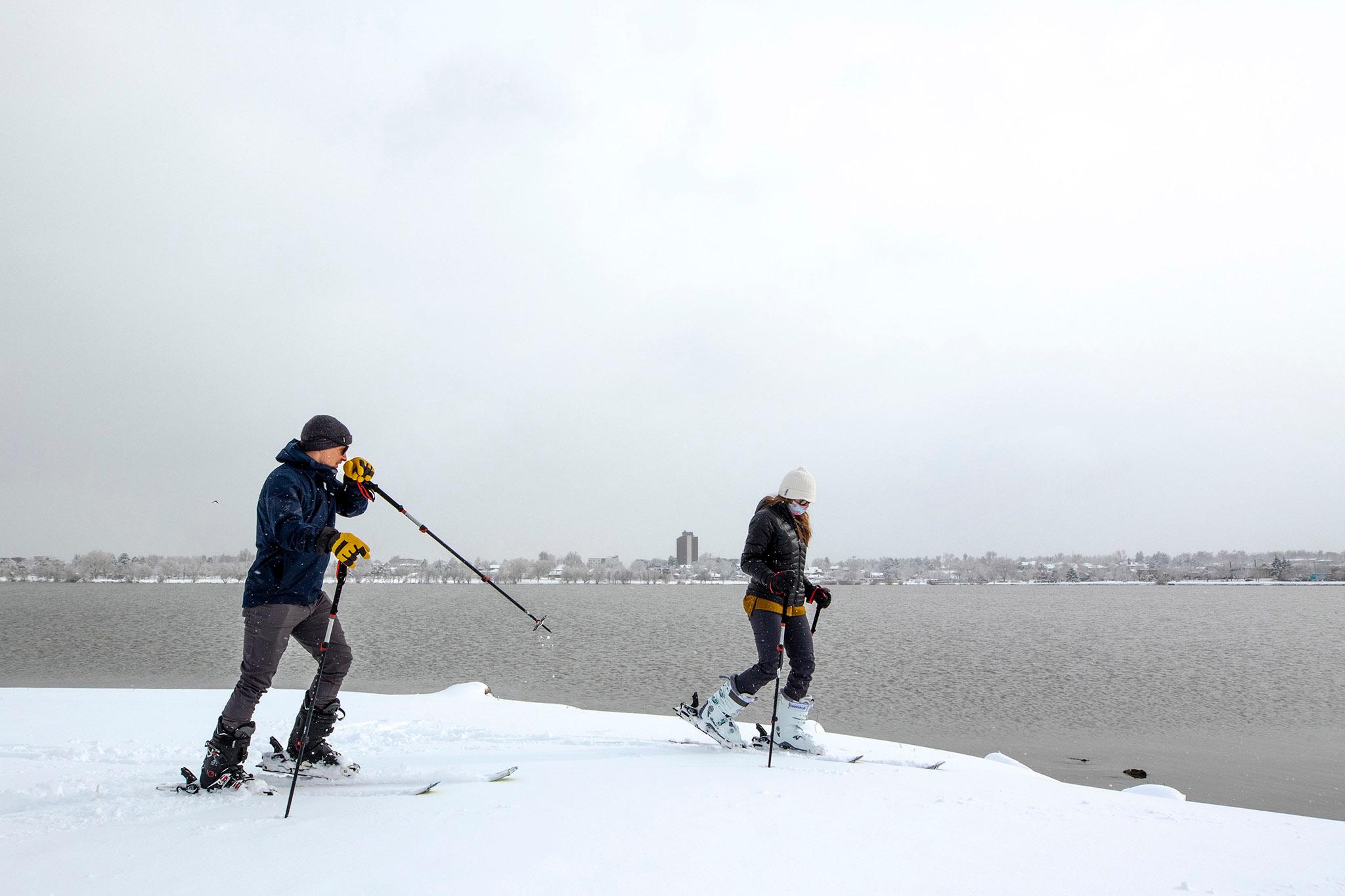The argument for cross-country skiing on Denver's golf courses might go something like this: It's not like anybody's golfing when there's snow on the ground. The land might as well be used for something. Why not skiing? You can save a trip to the mountains, get some quality exercise and enjoy the views without having to pay to play.
But skiing on the city's public golf courses is currently not allowed. Denver Parks and Recreation Deputy Executive Director Scott Gilmore told Denverite he's not necessarily against the idea, if it were to be vetted by the Parks and Recreation Board and the Denver Golf Board. But for now, a rule's a rule. And it's there for a reason, he said.
While there are plenty of places skiing on golf courses makes sense, Gilmore explained why his agency decided Denver isn't one.
Many golf courses up in the Rocky Mountains currently allow cross-country skiing. The snow's deep, it sticks, and the golf courses are closed for months.
"When you have a snowpack up in the mountains, you know, say up in Beaver Creek or wherever, that snowpack is there for the whole winter," Gilmore explained. "And so it's okay for skiers and others to go out and ski and snowshoe across the golf course, because they're not opening their golf course. And if it gets packed down a little bit, it's OK."
But down here in Denver, it's a different story.
Golf courses are open 365 days a year, weather permitting. Unlike parks, golf course funding comes from an enterprise fund. That means that the business of running the course pays for the operation -- not general tax dollars.
"We have to prioritize golf first. So when you have people wanting to go out and ski across the course, they actually pack the snow down. And then it actually makes it harder for the snow to melt," Gilmore explained. "So when you actually pack it down and then it doesn't melt and you can't open up the course, you actually are taking away the revenue to run the actual golf courses."
If you do ski on a golf course, you probably won't be ticketed or arrested.
When golf pros catch people skiing on the city's golf courses, they will often offer a verbal warning. If that doesn't work, or they can't catch up with the skier, they will call a park ranger to come to the golf course and tell the person to leave.
"Our rangers can go out and let people know that that activity is not allowed at this time on the golf courses," Gilmore said. "And they might suggest, you know, a local park that they could go to to do that activity. We have a lot of parks in the city. So there are other places that you can go do these activities.
So yes, you're hoping to strap on your skis or snowshoes, you're more than welcome to do so in nearly all of the public parks. Nearly all.
Take the newly renovated City Park Golf Course. You can't ski there, but "you got 200 plus acres, right across the street, at the park. That's fine," Gilmore said. "We don't have a problem with that, because that's open and you can recreate there all you want."
The same is true for Washington Park, Sloan's Lake or any other park with enough land.
At the Rail Yark at Ruby Hill Park, Parks and Recreation is even blowing snow, getting it ready for winter sports enthusiasts to test their skills. Sections of the park, with steep slopes, are also frequented by skiers and sledders after a big snow.
For those with the means to venture to the mountains, Denver Parks and Rec also operates 14,000 acres in its Mountain Parks system, where there is ample room to ski.
"We're trying to do the best we can to allow winter recreational activities in the parks," Gilmore explained. "But we do have to manage multiple uses. On the golf courses, golf is going to take a priority."














